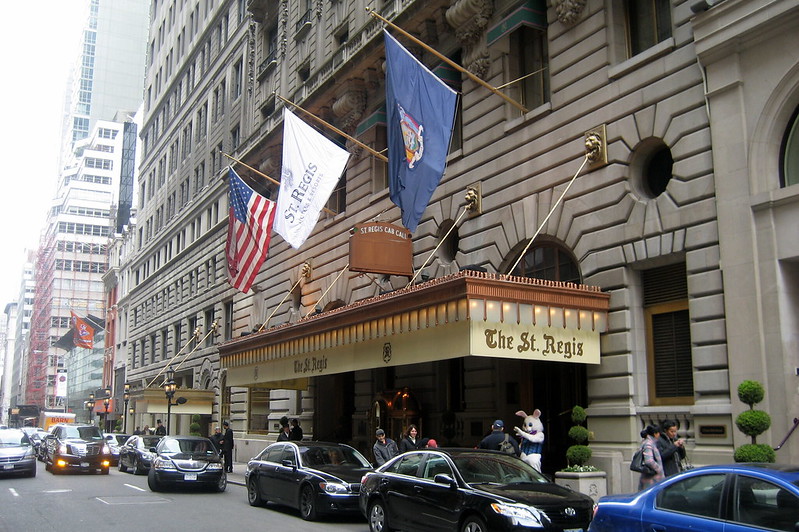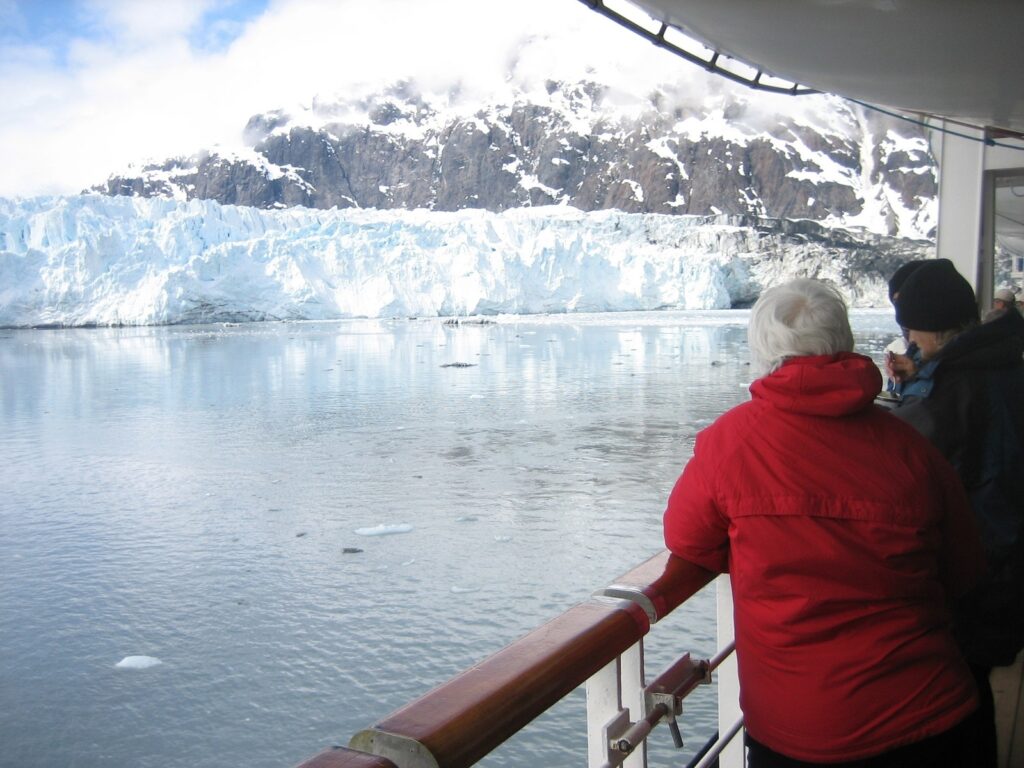New York City

The city is eliminating the 5.875% hotel room occupancy tax rate for three crucial summer months, from June 1 to Aug. 31. The mayor’s office said this executive action will spur demand and also help hotels remain open, giving jobs a boost while NYC continues toward full recovery.
At a press conference, the city disclosed that revenue from hotel room occupancy tax is down by 89% percent from the same period last year, while an estimated 257,000 jobs in tourism and hospitality were lost in 2020.
A record $30 million tourism campaign gets underway in June. “The tourism industry, which accounts for hundreds of thousands of jobs in the city, has nosedived during the coronavirus pandemic. NYC & Company, the city’s official tourism organization, estimates that tourism numbers won’t return to pre-pandemic levels until 2024. In 2019, a record 66.6 million tourists visited. Only 36.4 million are expected to visit in 2021, according to NYC & Company.” — The Wall Street Journal
Alaska
Legislation that temporarily relieves Alaska-bound cruise ships of the Passenger Vessel Services Act restrictions while Canada’s cruise ban is in place has now sailed through both houses of Congress. President Biden is expected to sign the legislation when it lands on his desk.
Related: Snackable Bites From All Over.
Canada
The United States land borders with Canada will remain closed to non-essential travel until at least June 21. The restrictions extend to ferry crossings, rail, and coastal ports of entry. Officials re-visit the status on a monthly basis. However, vaccination rates in Canada are lagging, currently at only 5% of the population.
Puerto Rico
Puerto Rico has lifted curfew, adjusted travel measures and removed test requirements for vaccinated U.S. travelers. From Monday, May 24, Covid-19 tests are only required for passengers arriving on international flights and those who have not been fully vaccinated. Because Puerto Rico is a U.S. territory, it’s excluded from the CDC requirement to provide a negative test result for passengers returning to the mainland. Guidelines are published at Discover Puerto Rico.
“Heard on the Street” Reports from Europe
The big news is that Europe has approved a plan to open borders on June 16 to vaccinated travelers this summer. Tourism-dependent Spain is going with an earlier date of June 7. Under the E.U. plan, the bloc of 27 nations would accept visitors from “safe” countries that have completed immunization at least two weeks prior to arrival.
Meantime, it’s clear that all of us working on inbound-US tourism have work to do. In key European markets, there’s a steep uphill climb for marketers to address while Europeans deal with confusion and complications that weigh against any pent-up travel demand there may be to go beyond their own borders (when those borders re-open). And, of course, the wish to visit friends and family keeps Europeans in Europe.
In London, Rome, Paris, and Munich, we talked to four travel industry contacts and family members with inbound-US expertise to gather insider views.
United Kingdom
Working off a traffic light system of its own (no longer a member of the European Union), the British government’s recently created “green” list currently includes only a dozen countries. The U.S. is “amber.” Health Secretary Matt Hancock has warned the public that “foreign holidays were a ‘very bad idea’ at the moment.”
Concerns about the newest proliferation of Covid-19 variants in regional pockets has led U.K. Transportation Secretary Grant Shapps to declare that “Britain was in no rush to expand the green list of quarantine-free destinations…”
The U.K., where 34.4% of the population is now fully vaccinated, has launched a vaccine certificate on its National Health Service app. Many under age 32 are still waiting their turn for a jab.
We spoke to one such born and bred Brit, Tim Farr (full disclosure, he’s my son), who said, “Short term staycations in the U.K. are preferred. All the cottages and Airbnb are sold out across the summer. British holidaymakers have always chased the sun and fun, and if short haul places like Portugal, Ibiza, Spain, and Greece are on the green list, there’s high demand for that over long haul travel. I think people have realised everything they need is in Europe; the pandemic has just underscored that feeling. Other than maybe taking the kids to Disneyland, the USA isn’t being talked about right now and the prestige has worn off quite a lot.”
Italy
The first Delta flight specifically for Covid-tested passengers (two negative tests) arrived in Milan last week, offering a quarantine-free entry. American Airlines and United Airlines also offer similar flights.
Marco Ferrari, communications consultant and former VP of public relations (EMEA) for Starwood, told me, “All of the Italians are eagerly awaiting to be able to travel again and not only within the Italian or EU borders, but are skeptical about being able to do so in the near future.” He added, “New York, Florida, California, Chicago and New Orleans for the music lovers, the ‘Wild West’ experience, nature and the National Parks are extremely appealing for the Italians as they offer an incomparable array of opportunities for travel experiences. While the ‘fear’ of the pandemic will certainly condition transatlantic travel in the short term (particularly because of the long hours to be spent in the cabin of the plane), I am sure that the USA will soon return to be one of the preferred travel destinations for Italians. It all depends on the safety procedures adopted in bilateral agreements at this stage (i.e. quarantine upon arrival this is highly demotivating and the US Embassy in Rome indicating Italy as a not safe destination for travel does not help the Italian authorities to incentivize travel of Italians to the USA…)”
France
The country has been planning a June 7 re-opening for the past several weeks. SchengenVisaInfo.com news reports the government tracing app has been downloaded by 1.5 million people, accounting for 24% of the population, allowing vaccinated people to attend sports events, festivals, and theme parks.
Paris-based Francesca Marchetti, former global head of sales at Kempinski Hotels and regional sales for Starwood in France, told me, “Concerning outbound travel from France I can only tell you what I believe from what we hear on television. I don’t think that the US is at the top of the French’s list of destinations. What I am hearing is that a lot will travel within France and those that want to cross borders will probably choose Europe, Italy, Spain mostly. But even so, personally I would not travel right now due to all the restrictions. Also the vaccination in France is not going very quickly and we don’t believe it will speed up anytime soon despite what they tell us; the situation with the vaccination is soooo confusing….”
Germany
Germany is moving cautiously, with only 14.3% of their population now fully vaccinated. They’ve just banned travel from the U.K. In talking with his friends and colleagues both inside and outside the industry, we hear a somewhat different point of view from Martin Stoll, CEO of Sparkloft Media.
From Germany, where people get free testing twice a week with results via email, Martin shares the following: “The picture here is very different than in the US but vaccinations are really picking up so the hope is that now progress will be made rather quickly. For me the big question is how proof of vaccination will be handled – e.g. vaccine passport and how will that work. I am fully vaccinated but had do a test in the US that could not be older than 48 hours at arrival and it had to be a test approved by the German health organization. Then another test upon arrival. And then now maybe quarantine or maybe not, as it is not clear how being vaccinated but not having a German document is being handled. And all of it changes every week. But Germans are more than ready to get going, there is huge pent-up demand.”
Back in Portland, Martin adds, “Only 40 people on my flight. For DMOs, the main thing to understand is that Europe handled testing so much differently, and travelers to the US will want to understand what the protocols are. This has to be a big part of the communication to make international visitors feel reassured.”
Tokyo Olympics
Never mind resident sentiment. While protest mounts, the International Olympic Committee announced that the delayed 2020 Tokyo Olympic Games will proceed as planned on July 23 – August 8, 2021, despite the Japanese capital city still being in a state of emergency. Only 2% of Japanese have had one or more Covid-19 vaccinations.
Cancelling is “essentially off the table,” said Dick Pound, longest-serving member of the IOC.
“The latest polls shows >80% in Japan oppose the Olympics this year.” — Selina Wang, CNN correspondent covering anti-Olympics protests.






